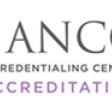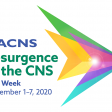Originally published on: Science of Caring, A Focus on People and a Sense of "We"
November 2016
In place of her blog post this month, we speak with Dean Sandra Weiss, PhD, DNSc, FAAN, who in September 2016 was named interim dean at UC San Francisco School of Nursing. Dean Weiss has been a deeply respected professor at the School for many years and has held a number of administrative positions within the University of California. She is the Robert C. and Delphine Wentland Eschbach Chair in Mental Health, co-director of the UCSF Depression Center and a professor in the Department of Community Health Systems.
What are your most important priorities for your time as interim dean?
One of my key priorities has to do with the people that make up the School of Nursing. I want our faculty, staff and students to feel as if they’re seen for and recognized fully for their many contributions. Sometimes we think of the School as an organizational structure rather than as the people who comprise it. But it is our faculty, staff and students who are the essence of the School. They are responsible for everything the School is and can be. It’s vital that we recognize their contributions and that they feel valued for all that they are doing.
My feelings about this are very congruent with the UCSF PRIDE initiative [a renewed push to raise the visibility of the UCSF core values of Professionalism, Respect, Integrity, Diversity and Excellence]. These values have always been a strong part of how our School has operated, but as this campus initiative gains momentum, we will be incorporating these values into many different efforts that further elevate their profile.
Respect for our people needs to be front and center. I want to bring the element of respect to every aspect of how we work with people here. Certainly, part of it is formal recognition, but it’s more of what we do on a daily basis, in our ongoing interactions with people. Do we fully attend to what each person is doing and how she or he makes a difference in the success of our School? And do we comment on these contributions so that people know they are appreciated? Fortunately, I believe all of the people who come into nursing and related health sciences fields inherently have some of this sensibility in them. Each of us can build on this to improve our interactions with others.
A second priority for me is to support an environment where our faculty and staff can think more deeply about their work and ways to best advance the School’s many missions. If we don’t create more contemplative time amidst the pressured expectations of our work, it’s much more difficult for innovative, cutting-edge ideas to emerge. I’ve recently put a work group into place that is identifying priorities for the School. While its primary focus is to enhance our fiscal health, it will also serve as an opportunity to develop new workplace models that can support a less stressed and hectic work environment. I’m hopeful – with the help of other things, like “lean” training – that these efforts will enable us to use our time more efficiently, strategically and thoughtfully, rather than trying to do it all with a sense of frenetic overload. It’s my belief that a focus on our people, instead of setting some external goals that I want to achieve, is the best way to ensure that we continue to excel in research and the science that drives our discipline, that we offer the very best educational programs in the world and that we serve our local, national and global communities with the fervor and commitment they deserve.
Continuing our efforts to diversify our student body and our faculty is also a high priority for me. This necessitates the presence of a climate that is welcoming and supportive and that provides resources to ensure success. We have some remarkable people who are leading these efforts – Associate Deans Judy Martin-Holland and Shari Dworkin as well as our amazing DIVA (Diversity in Action) and Recruitment and Retention committees. Although we are making inroads, all of us know that we are not yet where we need to be.
What existing strengths can we build on?
We have many areas of strength, some of which have been around for a while and some that have emerged in the last few years, whether its aging and palliative care, health care technology, symptom science or health policy. My goal in all of these areas is to encourage people to look across departments and our research institute to identify and pursue possibilities for collaboration. Financial support plays an important role in enhancing collaborations, as an incentive for people to look closely at where their individual efforts intersect with others’ and how their related work may contribute to the School’s overarching goals in new and exciting ways.
And the biggest barriers?
Our biggest barrier is the lack of adequate financial resources, which is certainly not a challenge that is unique to us. That’s why the work group on fiscal health I mentioned earlier is so important. We need to find ways to enhance our resource base and to get the most from existing resources without overburdening our students with large tuition hikes.
To that end, another work group we’ve created is exploring with UCSF Health (UCSF’s world-class clinical enterprise) how our faculty can contribute more fully to the clinical mission of the campus and enhance the School’s clinical income in the process.
What strengths do you, personally, bring to these efforts?
Well, I’ve served in multiple administrative and leadership roles in my career. Hopefully, I’ve learned something from those experiences that I can bring to this position. Also, my primary field is psych/mental health. I have a PhD in psychology as well as a PhD in nursing science, with a specialty in psych/mental health. This background reflects my inherent interest in what makes people tick. I think this background gives me some insight into my own behavior and helps me consider a variety of factors that may improve my work with others.
Also, by temperament, I’m a collaborative person. I learned that from my mother, who was an unbelievable role model. She exemplified a sincere kindness and ability to listen to people that was deeply inspiring to me. She was never telling everyone about herself or how grand she was. I respected those qualities tremendously. I once heard somebody say she was “a mouse” because they perceived her as not being aggressive enough. I disagreed. She was a very strong person who didn’t feel the need to always use her innate power to control the situation. She was highly successful in accomplishing her goals, but in a collaborative, sensitive and very astute way.
Finally, how does being an “interim” dean help or hinder your ability to achieve your vision?
Maybe it’s because I’ve been so much a part of everything that is happening in the School as part of my faculty role, but I don’t even think about being “interim.” That’s the beauty of shared governance (a core approach to governance in the entire University of California system that actively involves faculty in decision-making and leadership roles). There is a sense of “we” and that we’re all in this together, regardless of whether someone’s official role is as “faculty” or “administration.” So I think of my interim dean’s role as just one more leadership role in the School through which I can contribute to our various missions and our success in accomplishing them.



